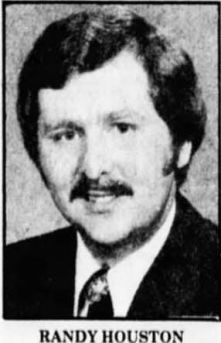North Carolina lawmakers have joined leaders from at least 18 other states clamoring for economic repercussions for Russia due to its ongoing invasion of Ukraine, a former Soviet satellite state and neighbor to the west.
A resolution unanimously passed by the N.C. House late last week urged Congress to allow state pension plans a pathway to legally recover Russian assets, which could lead to seizures of assets and properties in the United States.
The measure, requested by State Treasurer Dale Folwell, asked federal lawmakers to alter the Foreign Sovereign Immunities Act of 1976 to give state pension funds and other institutional investors more effective recourse “to hold corrupt regimes and foreign state-owned corporations accountable in U.S. courts for their actions.”
Passage of the bill was largely symbolic because state lawmakers have no power over Congress aside from applying pressure to U.S. senators and representatives and garnering public attention around the issue.
“The bill was technically passed but has no legal effect,” said Greg Mennis, director of the public sector retirement systems project at The Pew Charitable Trusts. “In essence, it urges the U.S. Congress to make a change to an existing law.”
As of Monday, at least 19 states have proposed or passed bills and executive orders to divest Russian assets from their public pension funds or to exclude any future investments, according to preliminary research by The Pew Charitable Trusts.
At least six states have done so through proposed legislation, but North Carolina’s bill stands alone in that it would not actually require divestment of the state’s pension funds — it would only give legal resources to recoup some of their losses, Mennis said.
The North Carolina pension system is one of the 10 largest in the nation, he said.
Roughly $92 million of North Carolina’s retirement portfolio for public employees is tied to Russian institutions, according to the treasurer’s office.
But what may seem like a substantial chunk of money amounts to little more than 0.06% of the state’s $133.7 billion public pension system. Folwell, however, believes it is worth the legislative, administrative and legal costs that would come with recouping shrinking Russian capital.
“From my understanding of what the laws are, in the oath that I took to become the state treasurer, there wasn’t a dollar amount (in that oath),” Folwell said in an interview with Carolina Public Press, shortly after his office released a statement last week calling for the General Assembly to condemn Russia’s “murderous military invasion,” while pursuing economic damages through U.S. courts that “could lead to seizure of Russian assets and properties.”
The state’s pension fund, the NC Total Retirement Plans, has been invested in international index funds for several decades, and custodians of those international indices decide what assets make up the funds, Folwell said. The $92 million tied to Russian assets has been depreciating since Russia launched its invasion more than two weeks ago, he said.
Mennis said a move away from Russian assets will not dramatically impact North Carolina’s overall investment policies, due to how little Russian funds make up the public pension system.
Although the Russian investment is relatively insignificant compared with the entire fund, Mennis thinks there is a valid argument to remove Russian-tied capital.
“Obviously, in this case, there are political and policy-driven motivations that inform some of these conversations, but it is also true with the sanctions and some of the actions that Russia is already taking in terms of infringing on copyright laws and so forth, that there’s a case to be made that it’s a less attractive area to invest in, just on the merits,” he said.
North Carolina is also unique in that it is one of three states, along with New York and Connecticut, where the treasurer “does have outsized responsibility” as sole fiduciary of the public pension plans, according to Mennis.
Putting pressure on wrongdoers
North Carolina first broached the subject of sanctioning Russia when Gov. Roy Cooper signed an executive order on Feb. 28 directing state government departments under his executive authority, like the N.C. Alcohol Beverage Control Commission, to “review all existing contracts and operations and to terminate any agreements or operations that directly benefit Russian entities.”
“This order sends a strong message and helps ensure no public dollars or operations from North Carolina will benefit Russia and its unjustified aggression,” Cooper said.
The order “strongly encouraged” other state agencies, like the Treasury Department, to adopt similar policies, including divesting from Russian assets “to ensure that public dollars and operations do not benefit Russia.”
Folwell said his request to state legislators last week was not a response to that executive order, citing his role as the sole fiduciary of the state’s pension fund.
“With all the emotions surrounding the topic, people said, ‘What are we doing in Russia?’” Folwell said, noting that many urged him to simply sell those Russian assets.
“Well, you can’t sell them because the custodians (of the international indexes) have them all locked down. There’s no trading going on. … I’m just trying to recoup (benefit recipients’ and taxpayers’) losses, pure and simple,” Folwell said.
Mennis pointed to a precedent for shunning investments from countries or industries responsible for certain humanitarian crises. Roughly a quarter of large public funds currently have policies in place to divest or exclude investments in Iran, Sudan or both countries, and similar policies were created to punish South Africa for governing through an apartheid system, before its demise in the early 1990s, he said.
In recent years, public funds have excluded investments by weapon manufacturers, tobacco manufacturers and, in some cases, fossil fuels companies, according to Mennis.
The moves come with administrative costs, he added. “Fiduciary laws and duties typically call for the fiduciaries to invest on a risk-adjusted return basis, and not to be focused on the political and policy aspects,” he said. “This is why more often than not, these sorts of policies are implemented through legislation.”
Folwell said he would negotiate any transactional costs of “going after” Russian-tied investments himself on a contingency basis.
“And there wouldn’t be one penny of money going toward that unless there was a return,” Folwell said.
STORY & PHOTO COURTESY OF CAROLINA PUBLIC PRESShttps://carolinapublicpress.org/52376/nc-officials-push-for-us-law-change-to-remove-nc-pension-investment-from-russia/
























